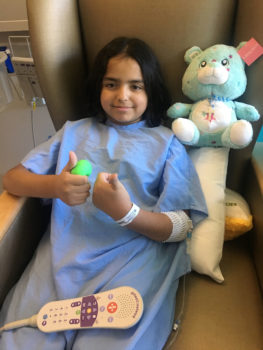“We’re Not Just Transplanting Organs, We’re Transplanting Lives”
4.25.2022 | Rose Ibarra
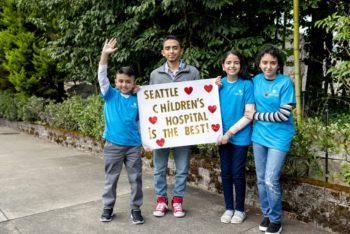 Having one child in need of a liver transplant can be tremendously challenging for a parent. Eugenia and Justino Hurtado have four.
Having one child in need of a liver transplant can be tremendously challenging for a parent. Eugenia and Justino Hurtado have four.
All four of the Hurtado children were born with Maple Syrup Urine Disease (MSUD) — a rare genetic metabolic disorder in which the body is unable to break down certain parts of proteins due to an enzyme deficiency. The disease can lead to a buildup of toxic substances that cause organ and brain damage.
Adolescents and adults with MSUD are also at risk for attention deficit disorder, anxiety and depression. Infections, stress, surgeries and injuries can lead to neurological damage at any age.
People with MSUD get most of their nutrients from a prescribed liquid formula. They can eat some low-calorie foods but must be very careful. If they stray from the diet, they can experience muscle spasms, breathing failure, intellectual and developmental disabilities or even coma.
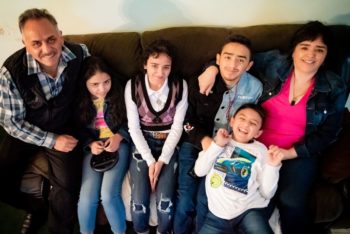 MSUD has drained the Hurtado children’s energy at times and delayed their learning. Having a rare disease has been isolating for them because they can’t do the same things as their healthy peers.
MSUD has drained the Hurtado children’s energy at times and delayed their learning. Having a rare disease has been isolating for them because they can’t do the same things as their healthy peers.
“If they catch a flu or their fever goes up or they eat something off their diet, amino acids in their blood rise very quickly and they have to go to the hospital,” Justino explains.
Each of Eugenia and Justino’s children had only a 25% chance of inheriting the disease, yet all four did.
Early on, providers told Eugenia and Justino their children could be cured with a liver transplant, but the risks — bleeding, infection and rejection of the donor liver — terrified them.
For more than 20 years, the Hurtados did their best to manage their children’s disease. Still, their children occasionally became so sick they had to be hospitalized.
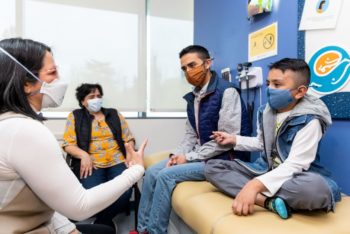 Then, in 2020, the Hurtados learned about another child with MSUD who had a successful liver transplant at Seattle Children’s. “We saw it changed his life forever and decided it was time,” Eugenia says.
Then, in 2020, the Hurtados learned about another child with MSUD who had a successful liver transplant at Seattle Children’s. “We saw it changed his life forever and decided it was time,” Eugenia says.
Eugenia and Justino put their faith in God and their trust in Seattle Children’s and added all four of their children to the national transplant waiting list.
Seattle Children’s is the only pediatric liver transplant program in the Pacific Northwest. The hospital has some of the best liver transplant outcomes in the nation — including a 100% one-year survival rate — and is one of only six pediatric hospitals in the U.S. that perform liver transplants on children with MSUD.
“We know children do well when they’re treated at a center that is experienced doing transplants,” says Dr. Evelyn Hsu, Seattle Children’s Division Chief of Gastroenterology and Hepatology. “At Seattle Children’s, we’re in our fourth decade of doing transplants in kids and our patients really benefit from that level of experience.”
Getting the Call
Marysol, 10, was the first to receive a donor liver in August 2020.
“We were nervous,” Justino says. “We have a lot of faith and prayed to God that the doctors would do their job well, and they did!”
Children with metabolic diseases like MSUD don’t necessarily need a liver transplant to survive, Hsu says, but their quality of life can dramatically improve if they do. “We’re seen these kids do really well with a transplant. It transform their lives so they can reach their full potential.”
Helping More Children Get the Transplants They Need
The family is still waiting for donor livers for Juan Carlos, 7, and Maritza, 24.
When Juan Carlos receives a liver, Seattle Children’s transplant team hopes to perform a domino liver transplant. It would be the first one performed in this part of the country. The livers of patients with MSUD are missing the metabolic component needed to break down amino acids, but they are otherwise healthy organs that can be donated to patients who need a new liver but do not have MSUD. Ideally, when Juan Carlos gets his new liver, surgeons will be able to give his liver to another patient in need, curing them both.
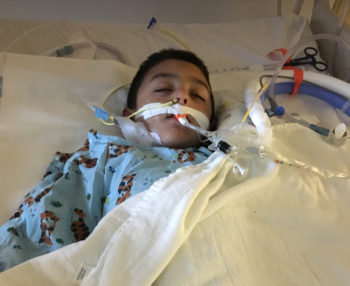 This is just one technique Seattle Children’s surgeons use to help more children get the transplants they need. Another is split organ transplant, when surgeons carefully divide a single donated liver to be used in two patients.
This is just one technique Seattle Children’s surgeons use to help more children get the transplants they need. Another is split organ transplant, when surgeons carefully divide a single donated liver to be used in two patients.
Innovations in treatment like these are only possible at Seattle Children’s thanks to a combination of groundbreaking research, expert clinical care and a generous community who come together to change kids’ and families’ lives.
“Liver transplant is a miracle,” Hsu says. “We are working to get every child off the transplant list with a 100% survival rate so they can live their best life. We’re not just transplanting organs, we’re transplanting lives.”
Learn more about Dr. Evelyn Hsu’s dedication to ensuring all children who need a liver transplant get the care they need in our previous article “Achieving Racial Equity in Transplants: Seattle Children’s Dr. Evelyn Hsu’s Mission.”
